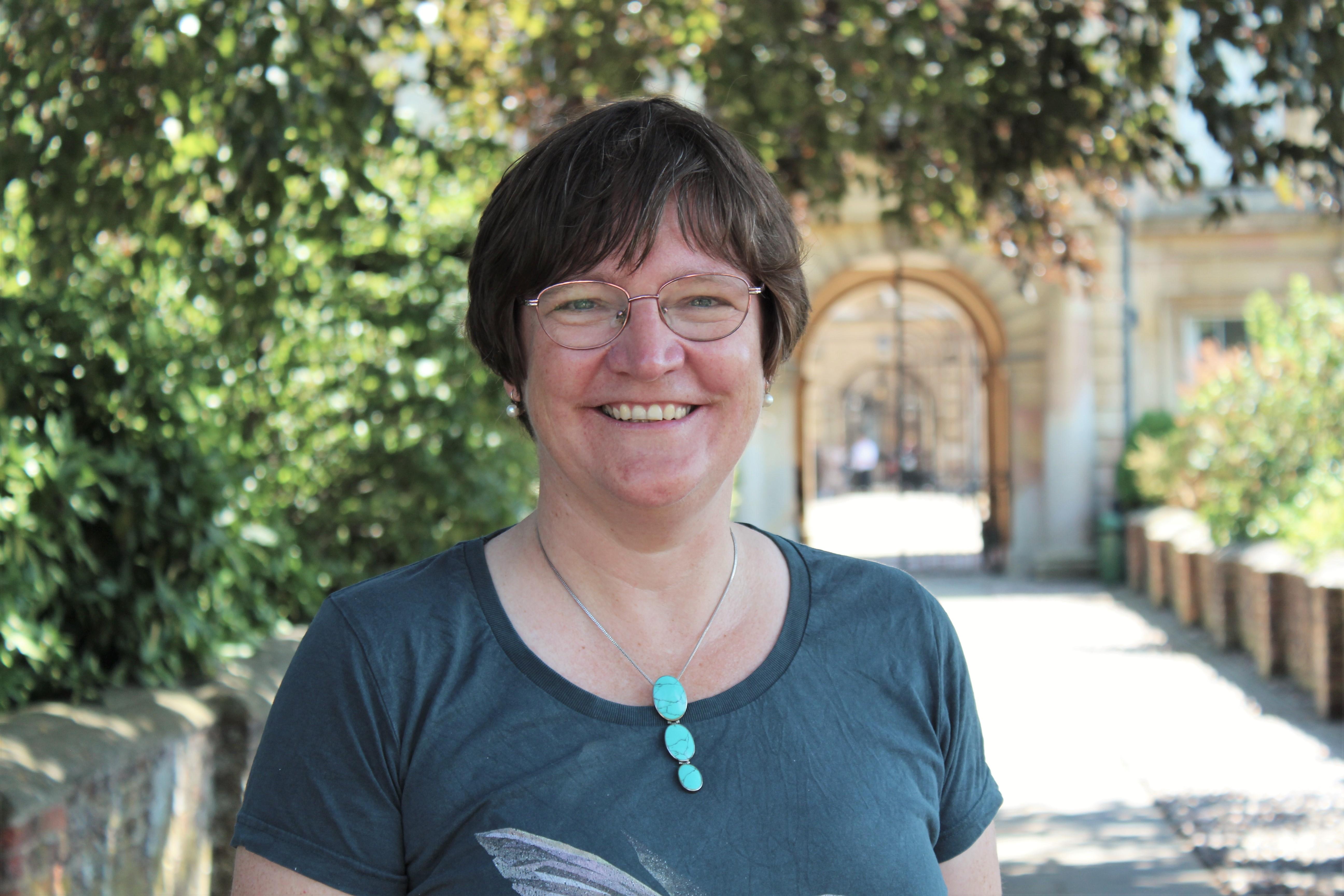Dr Ruth Watson

My interest in African history arises from having spent some of my childhood in the ancient Yoruba city of Ile-Ife, where I completed my primary schooling and also attended secondary school. After a short spell at a comprehensive school in Leeds, Yorkshire, I went back to my home country of Australia, where I developed a strong desire to return to Nigeria and discover more about its past. This got underway in 1994, when I began my D.Phil. research at the University of Oxford on the history of chieftaincy in Ibadan (another Yoruba city), which was founded as a war camp in 1829. I started my academic career at Birkbeck, University of London in 1999 as a lecturer in Imperial History, and took up my post of lecturer in African History at the University of Cambridge in 2006.
My PhD examined chieftaincy in the Yoruba city of Ibadan during the pre-colonial and colonial periods. I explored how the military chiefs of Ibadan adapted to the introduction of British colonial rule from the late nineteenth century, and what happened to ideas of political authority and civic culture. I found that neither Ibadan chiefs nor British officials were dominant; instead, each side was forced to adapt and change so as to accommodate the other. As part of my research, I spent a great deal of time visiting the old military households of Ibadan and interviewing the descendants of chiefs I was reading about in the colonial archives. This work underlies a broader interest in histories of African urbanisation and African urban cultures. My second project built on this work to examine the connections between literary culture, colonial society and the politics of 'respectability' in Yorubaland (southwestern Nigeria) during the early twentieth century, using the diary of an Ibadan gentleman (Chief Akinpelu Obisesan) as a source.
My current project is titled ‘Crowds in World History’. Partly inspired by my work on African urban cultures, it explores ‘the crowd’ as a social and historical category. Conceiving crowds as more than simply aggregations of people, it examines how people become conscious of being part of a crowd, and how in turn such crowds develop their own social momentum. It will document how ideas about the crowd and instances of crowd action (such as riots) are an important theme in world history from ancient to contemporary times.
I welcome PhD students interested in topics on the social and cultural history of nineteenth- and twentieth-century Africa. Currently I supervise three PhD students working on topics as diverse as the history of radio in East Africa, African women, gender and the railways in Zimbabwe, and the history of the night in South Africa. I have previously supervised students studying architectural modernity in Lagos and Nigerian soldiers in the Second World War.
Undergraduate Teaching and Supervision
Part IA: The Global South since 1750
Part II: Paper 29: The history of Africa from 1800 to the present day (Convenor)
Graduate Teaching and MPhil Supervision
I teach an MPhil option course on ‘Crowds in World History’ and supervise MPhil dissertations on a wide range of topics.
Contact
Tags & Themes
Clare College
Memorial Court
Cambridge CB3 9AJ
Publications
Book
'Civil Disorder is the Disease of Ibadan': Chieftaincy and Civic Culture in a Yoruba City (Oxford: James Currey, 2003)
Journal Articles and Book Chapters
Akinpelu Obisesan - A gentleman diarist in colonial Africa Englesberg Ideas (22 May 2022)
‘“My desire is to be the possessor of all the best books in this world of struggle”: Respectability and literary materialism in colonial Ibadan’ Africa 88 (2018), pp. 312-331.
‘“No one knows what he is until he is told”: Audience and personhood in a colonial African diary’ Journal of Imperial and Commonwealth History 44 (2016), pp. 815-832.
‘Literacy as a style of life: Garveyism and gentlemen in colonial Ibadan’ African Studies 73 (2014), pp. 1-21.
'Beholding the colonial past in Claire Denis's Chocolat' in R. Mendelsohn and V. Bickford Smith (eds.) Black and White in Colour: African History on Screen (Double Storey: Cape Town, 2006)
'"What is our intelligence, our school going and our reading of books without getting money?" Akinpelu Obisesan and his diary, 1914-1929' in K. Barber (ed.) Africa's Hidden Histories: Everyday Literacy and Making the Self (Bloomington: Indiana University Press, 2006)
'"Understanding the "Agbaje Affair": Chiefs and Politics in Ibadan, 1937-1951' in Olufemi Vaughan (ed.), Tradition and Politics: Indigenous Political Structures and Governance in Africa (Trenton NJ: Africa World Press, 2005).
'Murder and the political body in early colonial Ibadan'. Africa 70:1 (2000), pp. 25-48.
‘Change in the symbolic meaning of Mapo Hall, 1925-1945’, in G.O. Ogunremi (ed.), Ibadan – An Historical, Cultural and Socio-economic Study of an African City, (Lagos: Spectrum, 2000), pp. 84-103
'"Ibadan - A model of historical facts": Militarism and Civic Culture in a Yoruba City'. Urban History 26:1 (1999), pp. 5-26.
'"The cloth of field of gold": Material culture and civic power in colonial Ibadan'. Journal of Historical Sociology 11:4 (1998), pp. 461-491.
‘Seeing double in postcolonial histories’. Melbourne Historical Journal 23, (1995), pp. 1-16.
